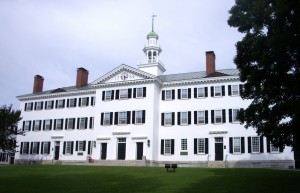The value of a college degree in America, while still very important, has been in a relative decline recently. Between skyrocketing tuitions, burdensome student loan debts, and still-high unemployment for college graduates, the benefits are no longer so much greater than the costs. Nonetheless, admissions have grown ever more competitive as the number of students applying to college has increased and the number of schools each student applies to has also increased.
While most elite colleges have hung on the value of their prestige in the face of the evidence of declining value, a recent Gallup survey found that more selective universities do not produce better workers or happier people. Instead, the survey found, relationships with inspiring professors produce better workers.
According to the Wall Street Journal, “graduates who felt ‘emotionally supported’ at school by a professor or mentor… were three times as likely to report they thrived as adults.” Furthermore, those who “reported having ‘experiential and deep learning’ were twice as likely to be engaged at work as those who didn’t.” This engagement is important because it leads to greater productivity.
Former Indiana governor and current Purdue University president Mitch Daniels, who helped come up with the study, acknowledged, “there is a lot we don’t know about higher education, and there is a sense it’s skating on its reputation. We needed to know with more rigor how well the experience is serving people.”
So, should Dartmouth, as an elite, selective university, be worried? While the College on the Hill has its issues to resolve, this study should give more credence to the value of a Dartmouth education. If universities produce better results because of things like professor relationships, rather than selectivity alone, then Dartmouth should yield better results than most schools. The College’s unparalleled commitment to undergraduate education sets it apart from other elite institutions and is perhaps why it has the second-highest alumni giving rate in the Ivy League. According to the Wall Street Journal, Dartmouth graduates also have the highest mid-career median salary, which suggests that Dartmouth may produce better workers than its peer institutions. Few other schools can boast a faculty that cares about and engages with students as much as Dartmouth does.
It’s encouraging that amidst the negative press and polarizing distractions that Dartmouth’s core mission of undergraduate education remains as important as ever.


Be the first to comment on "Elite Universities Don’t Make You Happy"